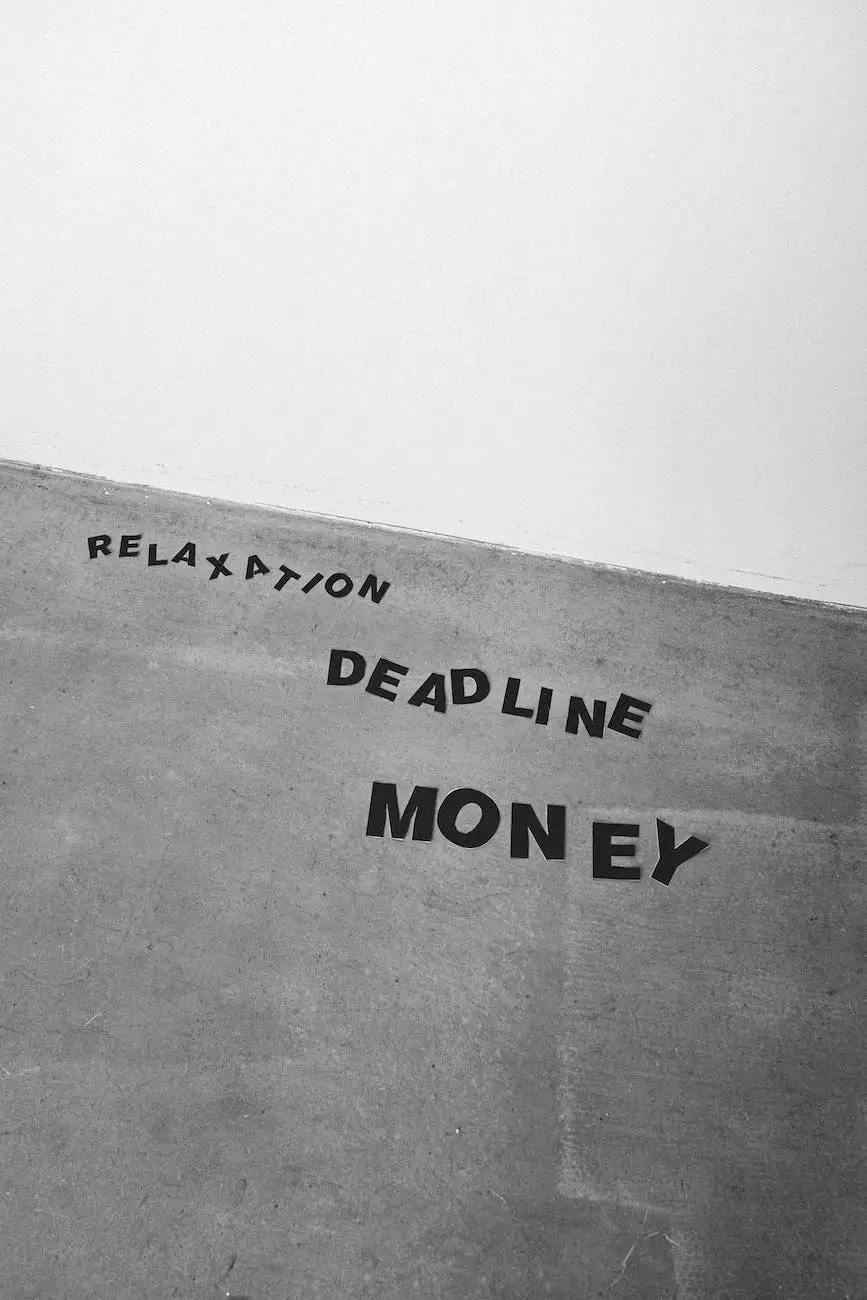Simple Ways to Reduce Money Stress
Our History
Welcome to Social Service of America's blog, where we share valuable insights and tips on various aspects of improving financial well-being. In this post, we'll explore seven simple yet effective ways to reduce money stress and take control of your finances. Our mission is to provide resources that empower individuals to alleviate financial worries and build a stress-free future.
1. Create a Budget
One of the fundamental steps in reducing money stress is creating a budget. A budget allows you to track your income and expenses, providing a clear overview of your financial situation. Start by listing all sources of income and categorizing your expenses. Analyze your spending patterns and identify areas where you can cut back, allowing you to allocate funds towards saving or debt repayment.
2. Prioritize Saving
Building an emergency fund is essential in reducing financial stress. Set a savings goal and contribute regularly to ensure you're prepared for unexpected expenses or emergencies. Automating your savings can make this process easier and more consistent. Dedicate a portion of each paycheck towards your savings account, and watch your funds grow over time. Having a financial safety net can significantly reduce anxiety associated with unexpected financial burdens.
3. Manage Debt Effectively
Debt can be a major source of stress. Take proactive steps to manage your debt effectively. Prioritize paying off high-interest debt first and consider debt consolidation options to simplify your repayment process. It's also important to understand the terms and conditions of your loans or credit cards to avoid unnecessary fees and penalties. Seeking professional advice from financial experts can provide valuable guidance in managing your debt and minimizing stress.
4. Practice Mindful Spending
Mindful spending involves being conscious of your financial decisions and aligning your purchases with your values and priorities. Before making a purchase, ask yourself if it brings long-term value and aligns with your financial goals. Avoid impulsive buying and utilize strategies such as creating a shopping list, comparing prices, and practicing a cooling-off period before making significant purchases. By being mindful of your spending habits, you can reduce unnecessary expenses and allocate resources towards meaningful goals.
5. Seek Financial Education
Improving your financial literacy is key to reducing money stress. Educate yourself on various financial topics such as budgeting, investing, and retirement planning. Numerous online resources, books, and financial courses are available to help you gain a better understanding of personal finance. Social Service of America offers educational programs and workshops that empower individuals with knowledge and skills to make informed financial decisions.
6. Embrace a Healthy Lifestyle
Physical and mental health greatly impact your overall well-being, including your financial state. Stress can lead to unhealthy coping mechanisms, such as excessive spending or emotional eating. Prioritize self-care activities like exercise, meditation, and adequate sleep. By focusing on your well-being, you'll be better equipped to handle financial challenges and make sound financial decisions.
7. Build a Support Network
Building a supportive community can provide valuable emotional and financial assistance during challenging times. Share your financial goals and concerns with trusted family members, friends, or mentors. Engage in discussions about personal finance, exchange ideas, and learn from each other's experiences. Social Service of America also offers support groups and networking opportunities for individuals seeking guidance and connection.
By following these seven simple ways to reduce money stress, you'll be taking significant steps towards improving your financial well-being. At Social Service of America, we believe that everyone deserves financial stability and a stress-free future. Explore our website for more resources, programs, and services dedicated to helping individuals in our community create a positive financial future.









